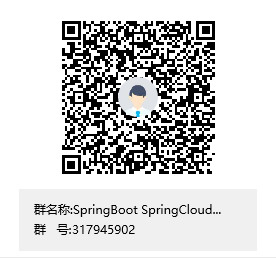filebeat设置多个路径配置
###################### Filebeat Configuration Example ########################## This file is an example configuration file highlighting only the most common# options. The filebeat.reference.yml file from the same directory contains all the# supported options with more comments. You can use it as a reference.## You can find the full configuration reference here:# https://www.elastic.co/guide/en/beats/filebeat/index.html# For more available modules and options, please see the filebeat.reference.yml sample# configuration file.# ============================== Filebeat inputs ===============================filebeat.inputs:# Each - is an input. Most options can be set at the input level, so# you can use different inputs for various configurations.# Below are the input specific configurations.- type: log# Change to true to enable this input configuration.enabled: true# Paths that should be crawled and fetched. Glob based paths.paths:- /data/logs/xxx-xxx-decision/*.logtags: ["xxx-xxx-decision"]- type: log# Change to true to enable this input configuration.enabled: true# Paths that should be crawled and fetched. Glob based paths.paths:- /data/logs/system-manage/*.logtags: ["system-manage"]- type: log# Change to true to enable this input configuration.enabled: true# Paths that should be crawled and fetched. Glob based paths.paths:- /data/logs/xxx-xxx-evaluation/*.logtags: ["xxx-xxx-evaluation"]#- c:\programdata\elasticsearch\logs\*# Exclude lines. A list of regular expressions to match. It drops the lines that are# matching any regular expression from the list.#exclude_lines: ['^DBG']# Include lines. A list of regular expressions to match. It exports the lines that are# matching any regular expression from the list.#include_lines: ['^ERR', '^WARN']# Exclude files. A list of regular expressions to match. Filebeat drops the files that# are matching any regular expression from the list. By default, no files are dropped.#exclude_files: ['.gz$']# Optional additional fields. These fields can be freely picked# to add additional information to the crawled log files for filtering#fields:# level: debug# review: 1### Multiline options# Multiline can be used for log messages spanning multiple lines. This is common# for Java Stack Traces or C-Line Continuation# The regexp Pattern that has to be matched. The example pattern matches all lines starting with [#multiline.pattern: ^\[# Defines if the pattern set under pattern should be negated or not. Default is false.#multiline.negate: false# Match can be set to "after" or "before". It is used to define if lines should be append to a pattern# that was (not) matched before or after or as long as a pattern is not matched based on negate.# Note: After is the equivalent to previous and before is the equivalent to to next in Logstash#multiline.match: after# ============================== Filebeat modules ==============================filebeat.config.modules:# Glob pattern for configuration loadingpath: ${ path.config}/modules.d/*.yml# Set to true to enable config reloadingreload.enabled: false# Period on which files under path should be checked for changes#reload.period: 10s# ======================= Elasticsearch template setting =======================setup.template.settings:index.number_of_shards: 1#index.codec: best_compression#_source.enabled: false# ================================== General ===================================# The name of the shipper that publishes the network data. It can be used to group# all the transactions sent by a single shipper in the web interface.#name:# The tags of the shipper are included in their own field with each# transaction published.#tags: ["service-X", "web-tier"]# Optional fields that you can specify to add additional information to the# output.#fields:# env: staging# ================================= Dashboards =================================# These settings control loading the sample dashboards to the Kibana index. Loading# the dashboards is disabled by default and can be enabled either by setting the# options here or by using the `setup` command.#setup.dashboards.enabled: false# The URL from where to download the dashboards archive. By default this URL# has a value which is computed based on the Beat name and version. For released# versions, this URL points to the dashboard archive on the artifacts.elastic.co# website.#setup.dashboards.url:# =================================== Kibana ===================================# Starting with Beats version 6.0.0, the dashboards are loaded via the Kibana API.# This requires a Kibana endpoint configuration.setup.kibana:# Kibana Host# Scheme and port can be left out and will be set to the default (http and 5601)# In case you specify and additional path, the scheme is required: http://localhost:5601/path# IPv6 addresses should always be defined as: https://[2001:db8::1]:5601#host: "localhost:5601"# Kibana Space ID# ID of the Kibana Space into which the dashboards should be loaded. By default,# the Default Space will be used.#space.id:# =============================== Elastic Cloud ================================# These settings simplify using Filebeat with the Elastic Cloud (https://cloud.elastic.co/).# The cloud.id setting overwrites the `output.elasticsearch.hosts` and# `setup.kibana.host` options.# You can find the `cloud.id` in the Elastic Cloud web UI.#cloud.id:# The cloud.auth setting overwrites the `output.elasticsearch.username` and# `output.elasticsearch.password` settings. The format is `<user>:<pass>`.#cloud.auth:# ================================== Outputs ===================================# Configure what output to use when sending the data collected by the beat.# ---------------------------- Elasticsearch Output ----------------------------output.elasticsearch:# Array of hosts to connect to.hosts: ["10.254.193.137:9200"]indices:- index: "epu-bid-decision-%{[agent.version]}-%{+yyyy.MM.dd}"when.contains:tags: "epu-bid-decision"- index: "system-manage-%{[agent.version]}-%{+yyyy.MM.dd}"when.contains:tags: "system-manage"- index: "epu-bid-evaluation-%{[agent.version]}-%{+yyyy.MM.dd}"when.contains:tags: "epu-bid-evaluation"# Protocol - either `http` (default) or `https`.#protocol: "https"# Authentication credentials - either API key or username/password.#api_key: "id:api_key"username: "elastic"password: "changeme"# ------------------------------ Logstash Output -------------------------------#output.logstash:# The Logstash hosts#hosts: ["10.254.193.137:5044"]# Optional SSL. By default is off.# List of root certificates for HTTPS server verifications#ssl.certificate_authorities: ["/etc/pki/root/ca.pem"]# Certificate for SSL client authentication#ssl.certificate: "/etc/pki/client/cert.pem"# Client Certificate Key#ssl.key: "/etc/pki/client/cert.key"# ================================= Processors =================================# Configure processors to enhance or manipulate events generated by the beat.processors:- add_host_metadata: ~- add_cloud_metadata: ~- add_docker_metadata: ~- add_kubernetes_metadata: ~# ================================== Logging ===================================# Sets log level. The default log level is info.# Available log levels are: error, warning, info, debug#logging.level: debug# At debug level, you can selectively enable logging only for some components.# To enable all selectors use ["*"]. Examples of other selectors are "beat",# "publish", "service".#logging.selectors: ["*"]# ============================= X-Pack Monitoring ==============================# Filebeat can export internal metrics to a central Elasticsearch monitoring# cluster. This requires xpack monitoring to be enabled in Elasticsearch. The# reporting is disabled by default.# Set to true to enable the monitoring reporter.#monitoring.enabled: false# Sets the UUID of the Elasticsearch cluster under which monitoring data for this# Filebeat instance will appear in the Stack Monitoring UI. If output.elasticsearch# is enabled, the UUID is derived from the Elasticsearch cluster referenced by output.elasticsearch.#monitoring.cluster_uuid:# Uncomment to send the metrics to Elasticsearch. Most settings from the# Elasticsearch output are accepted here as well.# Note that the settings should point to your Elasticsearch *monitoring* cluster.# Any setting that is not set is automatically inherited from the Elasticsearch# output configuration, so if you have the Elasticsearch output configured such# that it is pointing to your Elasticsearch monitoring cluster, you can simply# uncomment the following line.#monitoring.elasticsearch:# ================================= Migration ==================================# This allows to enable 6.7 migration aliases#migration.6_to_7.enabled: true
点击加入QQ群交流:415777345
彩蛋
欢迎加入请求群学习交流:
Java/Python架构师①群:415777345
电脑PC用户快捷加入(点击超链接):415777345
手机QQ扫码加入:
SpringBoot SpringCloud Docker K8s ①群:317945902
电脑PC用户快捷加入(点击超链接):317945902
手机QQ扫码加入:
欢迎进群交流探讨!



































还没有评论,来说两句吧...